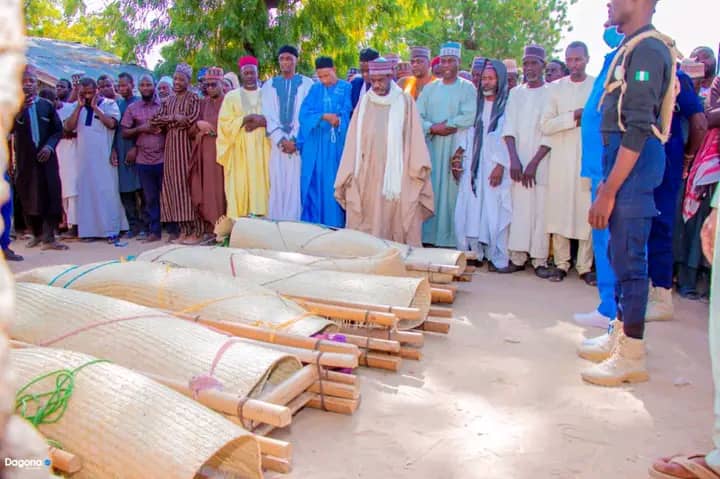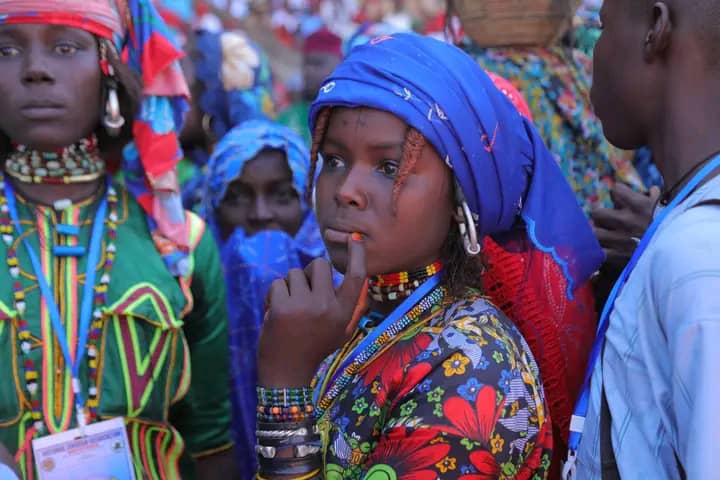For more than a thousand years incense, popularly called “Ka’aji” in Kanuri and also known as “Turaren Wuta”, has been used by the Kanuri and Shuwa Arab people – and some other tribes across the Lake Chad Basin – and is considered an important part of their culture.
The fragrances are processed from raw scented wood, such as sandalwood, mixed with perfumed oils.
Borno State, and particularly Maiduguri, is recognised as the centre for incense making and for many it has become a profitable business.
But, recently, the price of the ingredients used to make incense had spiked.
Hassan Mohammed, an incense trader at Maiduguri’s Monday Market, said raw woods were imported by dealers from countries such as India, Saudi Arabia and Morocco and the oil perfumes were brought from Dubai, Mumbai and China.
“We used to buy one bag of wood for 65,000 naira, but now a bag costs 180,000 naira. People are still buying it but the market for it now is much lower than before. We used to sell the products across Nigeria and Chad but because of the hike in prices, we sell it only in Maiduguri now.”
He said the insurgency, which had made transportation difficult between the countries, compounded by the impact of the COVID-19 pandemic, had affected many businesses and the economy as a whole.
According to culture, apart from the bride price – the dowry – paid by the groom, he was also expected to give money to the bride’s parents so that they could buy incense for the wedding.
Incense is used to freshen homes and neutralise odours and to perfume clothes. Some believe it protects homes from evil spirits. And others believe it is an aphrodisiac.
There are different varieties, with each serving a different purpose. Gap Gap has been described as a fine fragrance “that sparks memories and the joys of yesteryear”; Hawi, some say, has “an unmistakable aroma of authenticity”; Halut is “deeply woody”; Sandal flex “makes you and your home smell heavenly”; Kus Kus is used “for the body, clothes and home”; Dambu is “enticing” and Khumra “brings calmness, it clears the head, it spikes the libido, bringing love and warmth to the man and home”.
Hafsat Ahmad Sharubutu, a regular user of incense, said: “The prices of incense have hit so hard that I cannot buy as many as I did before. I used to pay between 1,000 naira to 2,000 naira. But now, for good quality incense, I have to spend 5,000 naira and upwards.”
Halima M Baba, a businesswoman who has spent 33 years making and selling incense in Maiduguri, said: “I have benefited for many years from my incense business and have always made a good profit from selling my products across all the states in Nigeria and beyond. But now prices have skyrocketed. I used to pay 600 naira for Halut, now it costs 2,500 naira; Hawi used to cost 800 naira, now it costs 2,500 naira and Gap-Gap use to be 600 naira and now it costs 1,200 naira. I also used to pay 7,000 naira for one bag of Furanum but that now costs 30,000.”
She said the increase in costs could affect contracts she made with the parents of brides – prospective grooms had to give money to the bride’s parents to pay for incense. “A contract can cost anything from 100,000 naira to 250,000 naira and upwards. It is part of the culture but at the rate this is going it might be out of reach for some parents and grooms.”
Many had abandoned the business because of the increase in prices and low profits. But Baba said she had no intension of quitting her business, even though her customers always complained about how expensive her incense was.
She said: “We inherited incense – it is part of our culture, part of our everyday life. We are proud of the perfumed incense we make and use. But not everyone can afford such high prices, which has prevented some women from using incense anymore. If the prices continue to spike, it will have a grave effect on the future of incense makers, sellers and buyers.”
Baba said dealers in incense ingredients had to reduce prices to preserve the age-old culture of incense, “not only in Borno State but also in many regions of the Lake Chad Basin”.








